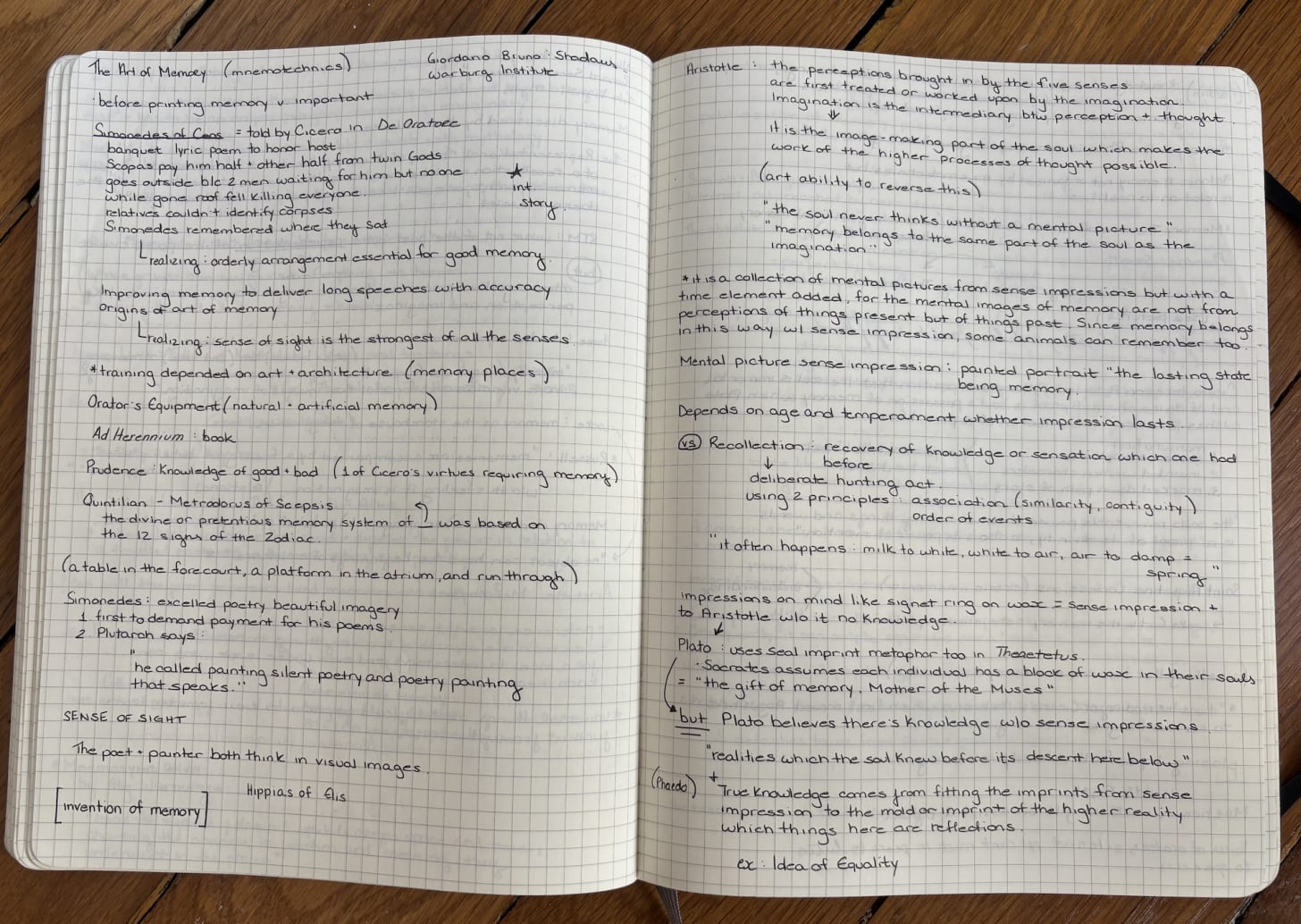Plutarch, Simonedes, Brazilian Music, and A Chronicle
My daughter’s first concert, the New York Times launches a poetry challenge, and a compelling visual library.
In this week’s newsletter: a chronicle I wrote about my delivery, something Plutarch said about Simonedes, my daughter’s first concert, and a compelling visual library.
Two Worlds: A Chronicle
by Renata Mosci Sanfourche
My mother didn’t leave the bedroom until the early evening. When she left she wore a knee-length skirt and a button-down shirt, she tied her hair back and tucked her Bible under her arm. She arrived at a simple building where a hand-painted fabric sign read God is Love.
I was delivered into two worlds, the two worlds my mother lived in.
In the beginning, I saw the world as it was intended for me, where my mother watered the garden, where her silk scarf smelled of patchouli, a world where she made coffee with our housekeeper each day at three. It was where my father rushed to the office after lunch, and where my brother hid from us his swarms of magazines.
On the other side of this world, my mother lived alone in a world imperceptible, a world with no smell, a world with no taste, with no color or carnal satisfaction as I would later come to see. It was a world that kept us at shore. No matter how close we arrived to it each week, no matter how deep we threw our anchor into its sea, we could only touch its passageway.
Until I was an adult I existed in the two worlds she introduced to me. For a long time, I would rest my head on a pillow and wait for someone on the other side to come talk to me. I had to try hard not to fall asleep. I’d ask for protection. I’d ask for deliverance from evil. I’d ask God to fix my crooked bottom teeth. I’d ask for the things my mother wanted: my father to stop drinking, my brother to stop lying, for harmony at home. It wasn’t until I heard myself saying the prayer’s final words, in Jesus name Amen, that I let myself drift into sleep. Each night as I closed my eyes on the other side of her wall so did she together with me. Her path took her closer to the world of flying cherubim. Mine took me further away from any world at all, from any form, any definition. She chased the imaginable, she had become everything she knew she could never be.
Each evening as I turned off my light and stretched my body in bed this world was going mute for me. I asked to see it, to feel its presence, but while it spoke to my mother in the language of angels it was silent with me. And while they visited her at night, they were but imaginary phantoms lying next to me. She promised me they were there, saying I perhaps needed to have more faith. Often, when we questioned my faith, she’d take me to visit Celia, her friend from church, who had adopted her fiftieth child. The eldest was married and had children of his own, and the youngest was a newborn found by a waste collector. The first time I met one of Celia’s daughters, I don’t remember her name, she had just testified in church to seeing an angel. I have to admit this gave me hope.
At night my mother saw everything but angels. When it happened, we’d find my father on the sofa or in my brother’s bedroom the next morning, and by the time breakfast came around he’d confess to not remembering anything at all. When he left for work she’d confide in us that in the middle of the night she woke up paralyzed, she couldn’t move her body and had access only to her eyes. She could blink, look up and down, left and right, and before she knew it she’d feel a presence over her body. She’d talk about the gruesome creatures she saw; figures with arched backs, long nails, horns, slimy, and dark brown. I always pictured the devil to look like shit.
Sometimes the demons would choke her until she’d be nearly dead. Once, when she started praying, invoking the power of the blood of Jesus, which she was told by the church was the only way to exorcise demons, the demons turned into bats and flew around her bed. She repeated these stories with a level of detail that to us children they were unquestionably true, after all we had been indoctrinated, and they felt no different from what we saw Thursday evenings at the liberation sermon. Beelzebub, Pombagira, Lucifer, legions, this was the language we heard at church each time we saw someone exorcised on the altar, each time the audience prayed and chanted to transfer their faith and help the pastor’s deliver that soul from the spirit that possessed it. When their bodies twisted and turned into arcs, when their hands cracked in disgusting directions, they’d announce legions.
These were the spirits she spent her life fighting off in church, at home, and even in me, in objects, in absolutely everything. My mother was at war with the devil.
A Visual Library
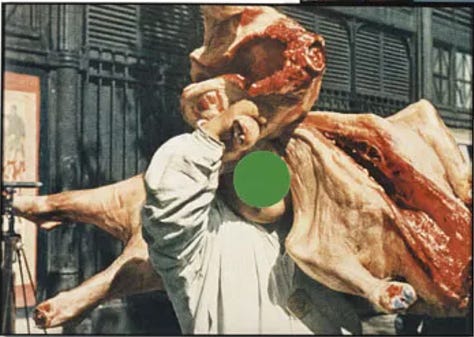
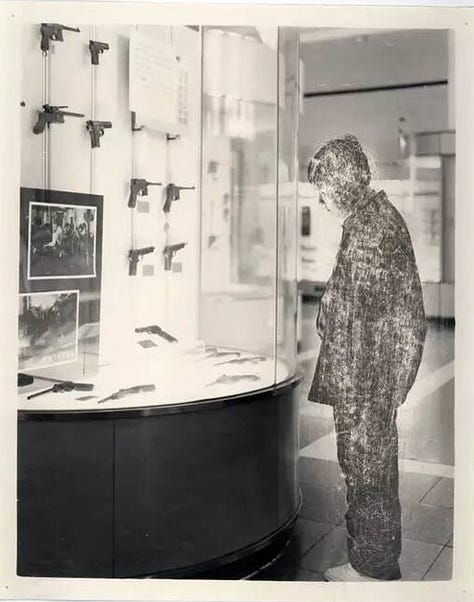
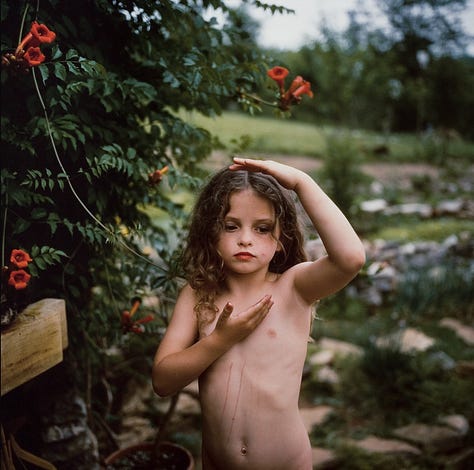
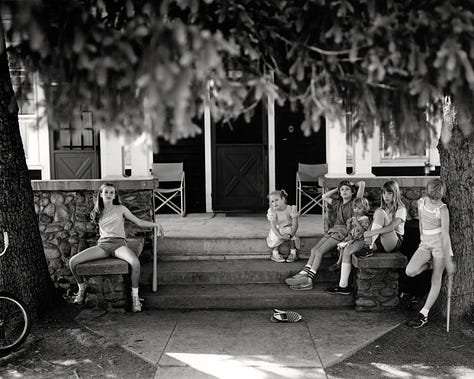

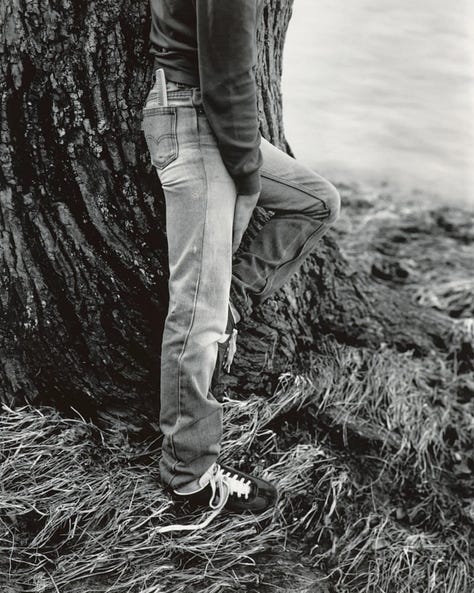
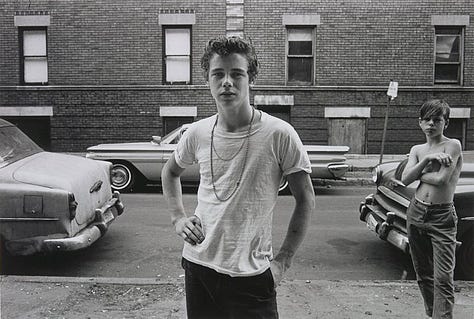

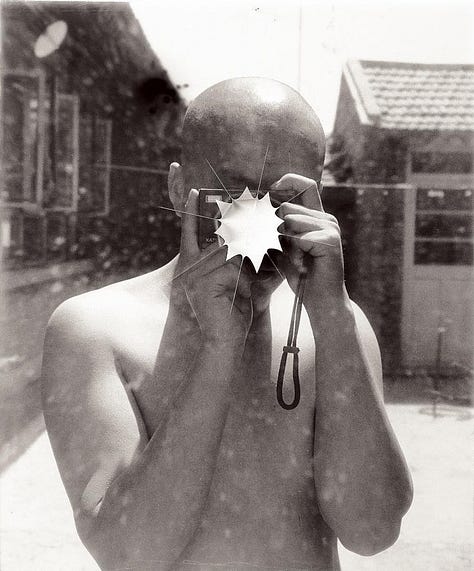
Currently at Rue de Chabrol
Four things I’m into this week:
The New York Times has a new feature called the Poetry Challenge. The idea is to memorize a short poem a day.
I’m very fond of my new Repetto ballerina flats in this powder blue that I’ve been wearing every day for the last two weeks.
Looking through some old notebooks and thought I’d share some pages with you. I love what Plutarch said about Simonides: “he called painting silent poetry and poetry painting that speaks.”
This entire album, which I can only find on YouTube, by Os Tincoãs, a Brazilian band from the 1970s. Their music was heavily influenced by Bahia’s Candomblé tradition.
What my husband is listening to:
Four things my daughter is into this week:
It’s finally warm in Paris and Vita is blossoming in her pink short sleeve wardrobe she’s been wanting to wear all year.
Someone at school has lice, she hasn’t caught it, so this morning I sent her off with wet slick back hair, a tight braid, and an anti-lice lavender spray. (she didn’t catch it).
She still asks me to play Marisa Monte’s Amor I Love You nearly every day.
Oh, and how could I forget, she has a boyfriend. His name is Arlo. He managed to get her in a Batman costume. I could go on for hours about the two of them, but let me just end by saying she whispered into his ears: you are my real love (or at least that’s what she told me she was going to whisper), he shared his chocolate with her, and they kissed.
A movie I’m thinking about:
The Adventure by Michelangelo Antonioni.
A Poem
Exile
by Hart Crane
My hands have not touched pleasure since your hands, —
No, — nor my lips freed laughter since 'farewell',
And with the day, distance again expands
Voiceless between us, as an uncoiled shell.
Yet, love endures, though starving and alone.
A dove's wings clung about my heart each night
With surging gentleness, and the blue stone
Set in the tryst-ring has but worn more bright.




